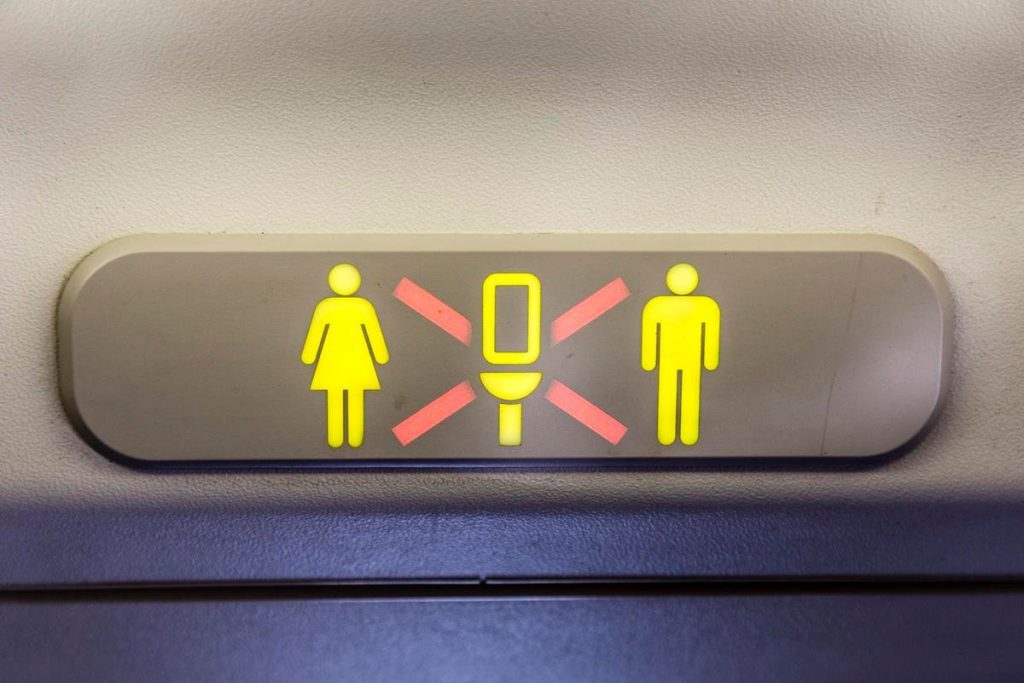The final ruling announced earlier this week by the U.S. Department of Transportation to amend the Air Carrier Access Act to provide accessible lavatories on board single-aisle aircraft is a welcome long-awaited development for the disability community.
As part of the new rulemaking, which was announced on Wednesday to coincide with the 33rd anniversary of the Americans with Disabilities Act, airlines will now be required to make lavatories on new single-aisle aircraft large enough to accommodate a passenger with a disability and an attendant, both equivalent in size to a 95th percentile male, to approach, enter and maneuver as necessary within the compartment.
This basic provision which non-disabled air passengers simply take for granted has long been high up on the agenda of organizations campaigning for equitable and accessible air travel. For passengers with disabilities, the absence of accessible toilets has been a significant pain point and source of misery leading many to have to adopt unpalatable and inhumane restrictions to even consider flying such as deliberate fasting and dehydration. Many others have simply been forced to remain grounded at home or use lengthier less practical forms of transportation.
One such organization that has been campaigning tirelessly for enhanced air travel accessibility, including the provision of accessible in-flight lavatories, is Paralyzed Veterans of America.
In a post published earlier this week on the non-profit’s online news pages PVA’s Chief Policy Officer Heather Ansley said, “Today’s announcement by the Department of Transportation that larger single-aisle aircraft will be required to have a wheelchair-accessible lavatory in the coming years is nothing short of groundbreaking.”
Ansley continued, “We are overjoyed that we finally have a rule that means future passengers with disabilities will be able to address basic bodily needs with dignity while on an aircraft. We appreciate the efforts of Secretary Pete Buttigieg and the Department to bring this critical rule over the finish line.”
A long way to go
Though announced on the anniversary of the Americans with Disabilities Act, ironically, air travel accessibility falls outside of the purview of the ADA. This speaks to one of the critical issues within what is viewed by many as quite possibly the most tangled and complex areas of transportation inclusivity on the planet. Its absence from the ADA removes a disabled citizen’s private right of action.
However, the reality is that accessible lavatories, though vital and highly symbolic are the mere tip of the iceberg when it comes to envisaging a fully accessible flying experience.
Overcoming infrastructure and design barriers such as inaccessible lavatories is a significant challenge as is a lack of appropriate wheelchair spaces and restraint systems on board aircraft. This leads to mobility-impaired passengers having to be separated from their devices and subjected to humiliating and sometimes painful manual handling by often inadequately trained airline staff in order to be seated. Equally, mobility devices such as powerchairs and scooters that are improperly stowed are at a heightened risk of being damaged. Roughly 29 wheelchairs are damaged every day by U.S. airlines according to data from the Office of Aviation Enforcement and Proceedings.
This lack of investment in staff training and awareness in addition to careless, inconsiderate and exclusionary policies from airlines was highlighted in a special BBC report earlier this week.
Though primarily focusing on the U.K., due to the nature of the airline industry, the BBC investigation also had an international perspective and examined the common practice of airlines insisting that passengers with certain disabilities travel with a personal assistant at an unsubsidized rate.
This, in effect, means passengers with disabilities who are already more likely to be on a low income having to pay for two seats at the full rate. Though, in many jurisdictions, personal assistant subsidies for disabled passengers are suggested as inclusivity and equality best practice – they are rarely mandated.
Some 28 major airlines flying out of London Heathrow including the likes of Emirates, American Airlines and Virgin Atlantic confirmed to the BBC that they do not offer any subsidies for personal assistants.
Clearly, air travel inaccessibility remains a multilayered issue with multiple regulatory, logistical and infrastructure challenges to overcome. Any piecemeal rule change in the right direction such as the U.S. Department of Transportation’s new requirement for accessible lavatories is, of course, a step in the right direction and can have global repercussions.
An interesting idea to emerge from the BBC article and one that has previously been mooted by the U.K.’s Civil Aviation Authority is to create published rankings of the disability inclusivity of each airline.
In today’s more DE&I-driven environment where perception is king and any and all information is at the fingertips of most of us – such a move might just be the jet fuel needed to propel airline access towards yet loftier goals.
Read the full article here










